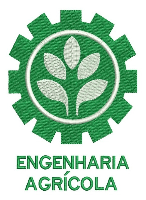
Engenharia Agricola
Scope & Guideline
Empowering global agricultural practices through open access.
Introduction
Aims and Scopes
- Agricultural Machinery and Equipment Design:
Research on the design, optimization, and testing of agricultural machinery and equipment, including tractors, harvesters, and irrigation systems to improve efficiency and reduce costs. - Crop Management and Agricultural Practices:
Studies that involve crop management techniques, including irrigation practices, pest control, and fertilization methodologies aimed at enhancing crop yield and quality. - Sustainable Agriculture and Environmental Impact:
Research focused on sustainable agricultural practices, soil management, and the impact of agricultural activities on the environment, including studies on emissions and resource management. - Biotechnology and Precision Agriculture:
Utilization of biotechnological advancements and precision agriculture techniques, including remote sensing, machine learning, and artificial intelligence in agriculture to optimize production. - Post-Harvest Technology and Food Quality:
Investigation of post-harvest technologies, including drying, storage, and processing methods that aim to minimize quality losses in agricultural products.
Trending and Emerging
- Artificial Intelligence and Machine Learning:
The integration of AI and machine learning for predictive analytics in crop management and machinery performance is increasingly prevalent, showcasing a move towards data-driven agriculture. - Remote Sensing and Precision Agriculture:
There is a growing emphasis on the use of remote sensing technologies for monitoring crop health, soil conditions, and irrigation management, which enhances precision agriculture practices. - Sustainable Energy Solutions in Agriculture:
Research focusing on renewable energy applications, such as biogas production and solar energy use in agricultural practices, highlights a trend towards sustainability and energy efficiency. - Climate Adaptation Strategies:
Studies addressing the impacts of climate change on agriculture, including adaptive practices and resilient crop varieties, are gaining momentum in response to global environmental challenges. - Advanced Post-Harvest Technologies:
Innovations in post-harvest processing and storage technologies aimed at preserving food quality and reducing waste are becoming increasingly significant in journal publications.
Declining or Waning
- Traditional Soil Management Practices:
Research on conventional soil management techniques has decreased as newer, more sustainable practices gain attention, such as precision agriculture and conservation tillage. - Static Irrigation Systems:
The focus on traditional static irrigation systems is waning in favor of more dynamic and technology-driven approaches, such as smart irrigation systems that utilize real-time data. - Generalized Crop Yield Studies:
Studies centered solely on crop yield without integrating advanced technologies or environmental impacts are becoming less common, as the field moves towards more holistic approaches. - Conventional Pest Control Methods:
Research focused solely on traditional pest control methods is declining, with a shift towards integrated pest management (IPM) and biocontrol strategies. - Basic Agricultural Economics:
Simple analyses of agricultural economics without the incorporation of advanced modeling or technology applications are witnessing a decrease in publication frequency.
Similar Journals

PHILIPPINE AGRICULTURAL SCIENTIST
Empowering Research, Transforming Agriculture.PHILIPPINE AGRICULTURAL SCIENTIST is a pioneering journal published by the University of the Philippines Los Baños, dedicated to advancing the fields of Agronomy, Crop Science, Animal Science, and Biotechnology. With an ISSN of 0031-7454, this esteemed journal provides a vital platform for researchers and practitioners focusing on agricultural innovations and practices in the Philippines and beyond. With a robust history dating back to 1996 and continuing through 2024, the journal operates within the Q4 quartile, reflecting its potential for growth and impactful contributions in its categories. Despite currently being positioned in the lower ranks, it serves as an essential publishing venue for nascent studies and localized research, contributing to the agricultural discourse. The journal fosters a collaborative research environment, encouraging submissions from both emerging scholars and seasoned experts, making it a valuable resource for students, professionals, and researchers engaged in the agricultural sciences. While it currently does not offer open access, it plays a crucial role in disseminating vital knowledge aimed at enhancing agricultural practices in the region.

Transactions of the ASABE
Connecting knowledge to practical applications in agriculture.Transactions of the ASABE is a premier journal published by the American Society of Agricultural and Biological Engineers, specializing in innovative research and practical applications in the fields of agricultural and biological engineering. With an ISSN of 2151-0032 and E-ISSN 2151-0040, this journal has established a vital niche in disseminating high-quality scholarly content that addresses the complex challenges faced in agriculture and biological systems. The journal operates under an open access model, facilitating broad dissemination of research findings to a global audience. This commitment to accessibility is reflected in its coverage of diverse topics, including agriculture, soil science, food science, and environmental engineering. Although the journal's coverage in Scopus was discontinued in 2021, it once ranked among the top in its categories, indicating its significant contribution to advancing knowledge in these essential fields. Researchers, practitioners, and students are encouraged to engage with the Transactions of the ASABE to stay abreast of developments and foster collaboration in promoting sustainable engineering solutions.

Revista Brasileira de Ciencias Agrarias-Agraria
Advancing agricultural knowledge for a sustainable future.Revista Brasileira de Ciencias Agrarias-Agraria is an esteemed academic journal published by the Universidade Federal Rural de Pernambuco, dedicated to advancing the field of agricultural and biological sciences. With a focus on disseminating high-quality research, this journal plays a pivotal role in fostering knowledge exchange within the agricultural community, particularly in Brazil and beyond. As a Q3 ranked publication in the Agricultural and Biological Sciences category, Revista Brasileira de Ciencias Agrarias-Agraria contributes to the growing body of literature by featuring insightful articles from both emerging and established researchers in the field. The journal has been consistently published since 2011 and is committed to open access principles, ensuring that research findings are accessible to a wide audience. Researchers, professionals, and students will find this journal an invaluable resource for deepening their understanding of current trends and innovations in agriculture.

Journal of Agricultural Science and Technology
Advancing Agricultural Innovation for a Sustainable FutureIntroducing the Journal of Agricultural Science and Technology, a prominent publication dedicated to advancing research in the field of agricultural and biological sciences. Published by TARBIAT MODARES UNIVERSITY in Iran, this journal has been a vital resource since its inception in 2008, fostering the dissemination of critical findings and innovative practices. With an ISSN of 1680-7073, it is indexed in reputable databases, contributing to its Q3 ranking within the agricultural sciences category for 2023, and placing it in the 51st percentile of Scopus rankings for general agricultural and biological sciences. The journal focuses on various interdisciplinary areas, providing a platform for research that impacts agriculture and food production systems worldwide. Although currently not an open-access journal, it aims to bridge knowledge gaps and promote advancements that meet the challenges of modern agriculture. Researchers, professionals, and students alike are encouraged to engage with the high-quality peer-reviewed articles that reflect the latest trends and discoveries in agricultural science.
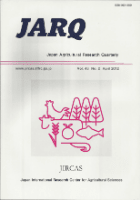
JARQ-JAPAN AGRICULTURAL RESEARCH QUARTERLY
Fostering Collaboration in Agricultural ResearchJARQ - Japan Agricultural Research Quarterly serves as a pivotal platform in the field of agricultural sciences, published by the esteemed Japan International Research Center for Agricultural Sciences. Established in 1973, this journal has a rich history and plays a critical role in disseminating significant research findings relevant to agronomy, crop science, animal science, ecology, and biotechnology. Despite its ranking in the lower quartiles, with impressive coverage from 1973 to 2024, it continues to attract contributions that enhance agricultural strategies and practices in Japan and beyond. The journal facilitates discussions that are essential for fostering innovation in agricultural methodologies and environmental sustainability. Accessible to a diverse audience, including researchers, academics, and practitioners, JARQ emphasizes the importance of advancing agricultural research and its implications for food security and ecological balance.
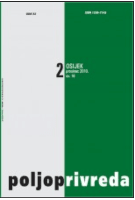
Poljoprivreda
Nurturing collaboration for global agricultural progress.Poljoprivreda is a distinguished open-access journal dedicated to the field of agronomy and crop science, published by the FAC Agriculture Osijek in Croatia. Since its inception in 2000, the journal has been committed to disseminating high-quality research that informs both academic and practical advancements in agriculture. With an ISSN of 1330-7142 and an E-ISSN of 1848-8080, Poljoprivreda provides a vital platform for researchers, professionals, and students to engage with the latest findings and methodologies in agronomy, contributing significantly to the enhancement of agricultural practices in Croatia and beyond. Although currently ranked in the 22nd percentile within its category according to Scopus, the journal aspires to elevate its standing by welcoming innovative research that addresses contemporary challenges within the agricultural sciences. By fostering open access since 2000, Poljoprivreda ensures that its scholarly content is freely available, promoting wider dissemination and collaborative opportunities among researchers globally.
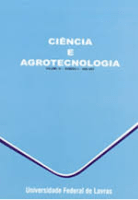
CIENCIA E AGROTECNOLOGIA
Cultivating Sustainable Solutions in AgritechCIENCIA E AGROTECNOLOGIA, published by UNIV FEDERAL LAVRAS-UFLA, is a vital open-access journal since 2005 that serves as an influential platform for disseminating research in the fields of Agronomy, Animal Science, Food Science, Soil Science, and Veterinary Science. With its ISSN 1413-7054 and E-ISSN 1981-1829, this journal is recognized for its contribution to science and technology advancements in agriculture, particularly in Brazil, fostering knowledge exchange among researchers, professionals, and students. Currently ranked in the Q2 quartile for Agronomy and Crop Science, Animal Science and Zoology, and in the Q3 quartile for Food Science and Soil Science, it demonstrates a solid international standing in the relevant Scopus indices. The journal's commitment to open access ensures that critical research findings are freely available, enabling a broader impact and encouraging collaborative advancements in agritech. As the journal looks towards its converged years from 2007 to 2024, it continues to uphold its objectives of promoting sustainable practices and innovation within the agricultural sciences.

Journal of the ASABE
Connecting Experts to Innovate in Agriculture and BeyondJournal of the ASABE, published by the American Society of Agricultural and Biological Engineers, serves as a pivotal platform for disseminating cutting-edge research in various disciplines, including Agronomy, Crop Science, Biomedical Engineering, Food Science, Forestry, and Soil Science. With an impact factor that reflects its significance and reach, the journal ranks in the Q2 and Q3 quartiles across numerous categories in 2023, showcasing its commitment to advancing knowledge in agricultural and biological engineering. Authored by leading experts, the journal offers accessible articles on innovative methodologies, technologies, and sustainable practices essential to the global agricultural and environmental landscape. Open access options ensure that research findings are readily available to a broad audience, promoting collaboration and knowledge sharing among researchers, professionals, and students alike. With a strategic focus on research convergence into 2024, Journal of the ASABE is poised to shape the future of engineering solutions in agriculture and beyond.
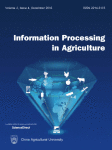
Information Processing in Agriculture
Cultivating Knowledge: Bridging Agriculture and TechnologyInformation Processing in Agriculture, published by Elsevier, stands at the forefront of interdisciplinary research merging agriculture with cutting-edge computational techniques. With an impressive impact factor derived from its classification within the Q1 quartile across five critical categories—including Agronomy, Animal Science, Aquatic Science, Computer Science Applications, and Forestry—this journal exemplifies excellence in scholarly communication. Open Access since 2014, Information Processing in Agriculture not only democratizes access to pioneering research but also accelerates innovation by breaking barriers for researchers, professionals, and students alike. The journal's comprehensive scope facilitates crucial dialogue on the implications of processing technologies in farming practices, contributing significantly to advancements in sustainability and efficiency within the global agricultural sector. As it converges topics from 2014 to 2024, scholars are invited to explore and contribute to a robust platform dedicated to enhancing food security and environmental stewardship.

Journal of Tekirdag Agriculture Faculty-Tekirdag Ziraat Fakultesi Dergisi
Transforming challenges into solutions for a sustainable future.The Journal of Tekirdag Agriculture Faculty-Tekirdag Ziraat Fakultesi Dergisi, published by UNIV NAMIK KEMAL, represents a significant platform dedicated to the dissemination of research in the fields of agricultural and biological sciences. With an ISSN of 1302-7050 and E-ISSN 2146-5894, this journal aims to advance knowledge and innovation within its scope, which encompasses a diverse array of agricultural topics and environmental pollution. Notably, it has achieved a Q3 category ranking in Agricultural and Biological Sciences and a Q4 category ranking in Pollution for 2023, reflecting its growing influence in the academic community. Operating from Turkey, the journal publishes articles that seek to address contemporary challenges in agriculture and environmental science, thus fostering collaborations among researchers, professionals, and students worldwide. Researchers can benefit from the journal’s focus on applied sciences, providing insights and solutions pertinent to real-world issues. Engage with cutting-edge studies and contribute to this evolving field by exploring the transformative research featured within.